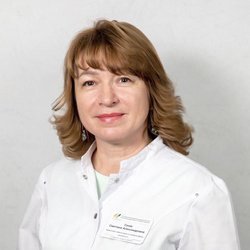Tatarstan to spend 60 million to fight whooping cough and other dangerous infections
The Cabinet of Ministers has issued a “secret” order to allocate funds for vaccinations of preschool children and conscripts
Additional purchases of vaccine for vaccination will help to cope with a surge in whooping cough in Tatarstan: the Cabinet of Ministers of the republic has allocated another 60 million rubles for this purpose. Another good news: this money will be used to purchase a vaccine that will significantly expand the range of people being vaccinated. Who and when will be vaccinated in the autumn and how it is different from the usual pertussis vaccine, which will now be used — read in the material of Realnoe Vremya.
To school — with vaccination
As Realnoe Vremya found out, on June 19, 2020, the Republican Cabinet of Ministers issued the order to allocate 60 million rubles from the budget for the purchase of vaccines, including from whooping cough. What is more, not the one that is usually used for vaccinations of young children — up to 18 months, but the French combined vaccine — Adasel, designed to prevent diphtheria, tetanus and pertussis not only in children over 4 years old but also in adults.
According to the data of the Department of organization of the state sanitary and epidemiological surveillance of the Russian Federation, the incidence of whooping cough in Tatarstan in 2019 in absolute terms increased by 331% compared to 2018. In terms of 1,000 people, which gives an even more objective picture — 4.3-fold (this is already data from Rospotrebnadzor).
According to Dmitry Lopushov, the chief specialist of the Tatarstan ministry of healthcare in epidemiology, the reason for the increase in the incidence, in particular, was that after vaccination with DTP vaccine, which is done according to the national calendar at three, six and eighteen months, the immune system gradually runs out and by school the child becomes vulnerable to infection again. Besides, today many parents postpone early vaccinations for later, or even refuse them at all.
Therefore, the use of Adasel vaccine in Tatarstan, which appeared on the Russian market less than two years ago, is more relevant than ever before entering school — both in terms of revaccination of previously vaccinated children, and in terms of immunising those who were not vaccinated at all.
Who and how much will get — confidential
As it became known to Realnoe Vremya, the mentioned 60 million budget rubles were allocated by the government of Tatarstan not only for revaccination and primary vaccination against whooping cough, but also for vaccination of conscripts who will be vaccinated against meningococcus, pneumococcus and chicken pox. They are scheduled to be vaccinated during the autumn recruitment campaign.
Since the order of the Cabinet of Ministers No. 1169-R, which details the costs for vaccines for preschoolers and conscripts, was not published and is publicly unavailable, we contacted the ministry and the press service of the government to clarify the number of doses of the new vaccine. There have been no responses yet. Upon receipt, information about the amount of purchased vaccine will be published.
“Revaccination is needed”

However, now in Tatarstan, as in all of Russia, there is an increase in the incidence of whooping cough at an older age, when children endure it much easier, but become carriers of the infection and can transmit it to younger brothers and sisters.
“Now whooping cough occurs even in children 14 years old," said Senek. “For vaccinations of older children, Adasel vaccine is successfully used by private clinics, but revaccination is not provided within the framework of MHI. Therefore, at the level of the government of Tatarstan, it was decided to purchase a vaccine for vaccination of preschool children and schoolchildren. Pertussis revaccination will be carried out in 6-7 years, before school. And I think the problem with whooping cough will be largely solved in the republic.
Future soldiers will be armed against pneumococcus and chicken pox
As for the vaccination of recruits, then, according to Svetlana Senek, the necessity of these vaccinations arises from two factors. First, many conscripts for various reasons — ranging from medical contraindications and ending with the principle refusal of vaccinations by their parents, remained unvaccinated from dangerous infections. Second, unvaccinated soldiers may not get sick themselves but may be carriers of infection and infect others who are less resistant and become ill. And third, military service means large teams, crowded personnel, and therefore a sharply increasing risk of widespread infections. One sick person here can easily disable the entire military unit.
The danger of these diseases, according to Senek, should not be underestimated:
“Pneumococcus causes pneumonia with a high percentage of deaths. Meningitis is infrequent, but it is also deadly, so it is also important to get vaccinated. And chickenpox is easily endured in childhood, but the older a person is, the more severe the disease is. And it's highly contagious. If one person gets sick, the whole team will get sick. Besides, chickenpox can cause chickenpox encephalitis — a severe disease that threatens disability. In the National Immunisation Schedule, the vaccination of conscripts against these diseases is included only for epidemiological reasons, but conscripts have such need, so the decision of the government of the republic to protect their recruits is very important. These vaccines have been actively used within the framework of MHI for more than three years, and experience has shown the effectiveness of their use.